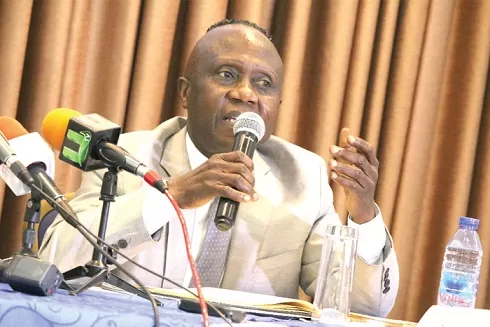An economist, Dr John Kwakye, has observed that that over the years, the Ministry of Finance appears to have been increasingly headed by tax specialists and less by economic planners.
He wants this narrative changed by creating a Ministry of the Economy alongside the Ministry of Finance that will be responsible for economic planning.
Dr Kwakye said this after raising concerns about the taxes that the current government has introduced. For instance, the government has introduced a Value-Added Tax (VAT) on electricity consumption.
Dr Kwakye said that contrary to its pledge to move the economy from taxation to production, this government will go down in history as one of the most taxing governments for the levies that it has brought.
The Ministry of Finance exists to ensure macro-economic stability for promotion of sustainable economic growth and development of Ghana.
In a post on his X platform, Dr Kwakye said “It appears that over the years, the MoF has been increasingly headed by tax specialists and less by economic planners. It’s time to consider creating a Ministry of the Economy alongside MoF to be responsible for economic planning.
“Contrary to its pledge to move the economy from taxation to production, this Gov’t will go down in history as one of the most taxing governments.”
On the issue of policy rate, he urged the Bank of Ghana (BoG) to reduce the current rate of 30 percent after observing that it is not helpful to businesses.
Dr Kwakye, also Director of Research at the Institue of Economic Research (IEA), said that no economy can thrive at the rate of 30 percent hence his call to the central bank to reduce the rate.
“Bank of Ghana has a duty to reduce the interest rate burden on the economy. No business or economy can thrive with over 30% [policy] rate. The problem lies in the Bank’s exclusive reliance on interest rates to control inflation without addressing the supply/cost drivers as well,” he wrote.
Bank of Ghana has a duty to reduce the intetest rate burden on the economy. No business or economy can thrive with over 30% interest rates. The problem lies in the Bank’s exclusive reliance on interest rates to control inflation without addressing the supply/cost drivers as well.
— J. K. Kwakye (@JohnKwabenaKwa1) January 14, 2024
At the last Monetary Policy Committee (MPC) press conference held in Accra on Monday, November 27, the BoG decided to maintain the policy rate at 30 percent.
Governor of the Bank of Ghana Dr Ernest Addison stated that although inflation was dropping, the rate was still high, hence the decision to maintain the policy rate at 30 percent.
The Policy Rate is an interest rate that the central bank sets in order to influence the evolution of the main monetary variables in the economy like consumer prices, exchange rate or credit expansion, among others.
The Committee noted that tighter financing conditions, slower growth in the manufacturing and services sectors, and China’s slower recovery were exerting some moderating influence on global economic activity.
Earlier aggressive policy tightening by advanced economies central banks has contributed to the dampening of inflationary pressures with headline inflation decelerating in many of their economies. This has led to a pause in the tightening cycle. But core inflation remains high and is declining slowly due to strong labour markets, Governor Addison said.
In the outlook, he added, central banks are expected to maintain policy rates at high levels for much longer periods to contain the still-elevated inflation levels relative to targets.
The prevailing higher policy rates, long-term bond yields, and renewed strength of the US dollar could continue to keep global financing conditions tight with consequences for Emerging Market and Developing Economies, he added.
Furthermore, rising geopolitical tensions are creating uncertainty about crude oil prices and full crystallization of this risk could undermine the disinflation process in many economies, including Ghana.

